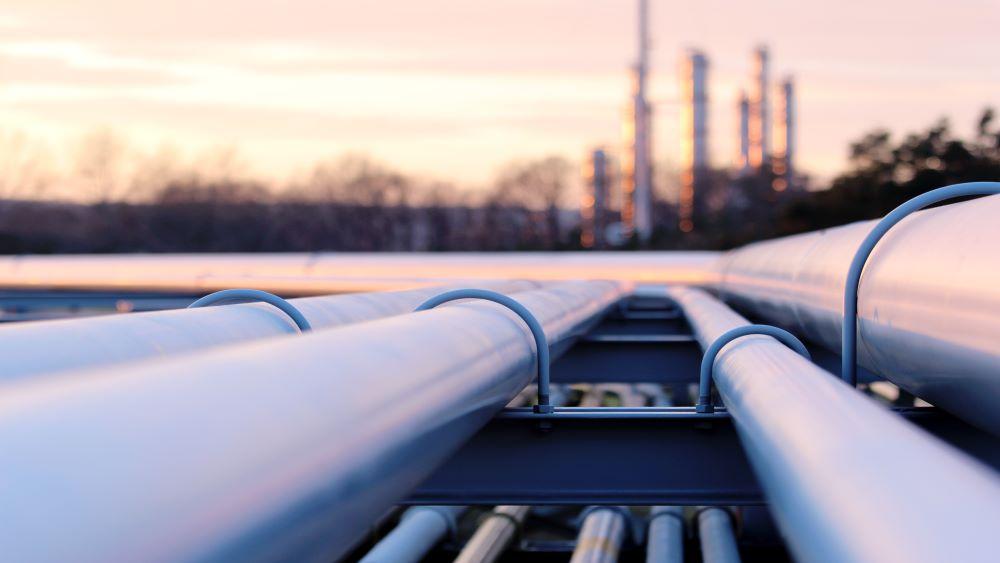For the UK to reach net zero, delivering hydrogen and carbon capture and storage (CCS) projects at scale will be “essential”, according to a new report from Aurora Energy research.
Released to coincide with the publication of the government’s hydrogen strategy, its Out of Gas? report argues that the increasing power demand in Britain will necessitate the use of these technologies to provide flexible low carbon power.
Power demand is expected to grow from roughly 50GW of firm capacity today to 80GW by 2050 it found, as sectors like transport and heating electrify to decarbonise.
A large share of this demand will be met by renewables, with over 100GW of wind and solar added to the electricity system between 2021 and 2050 according to Aurora. But the variable output of these technologies mean they cannot be relied upon to provide security of supply, the report continues.
It points to January as an example, when the load factor of UK wind farms fell to just 10% for an entire week. This saw National Grid ESO issue a number of Electricity Margin Notices, while imbalance prices skyrocketed.
“Questions remain in terms of how we ensure security of supply in a decarbonised power system,” said Marlon Dey, GB research lead at Aurora Energy Research. “This is due to the variability of renewables, especially when we experience extended periods of low wind output.”
Aurora points to a range of different technologies that could contribute firm and flexible low carbon capacity to support renewables, including nuclear, pumped storage and battery storage. But given the limitations of each – for example the duration of lithium-ion storage solutions currently being fairly short, and therefore ill-suited to extended wind lulls – as such “Looking out to 2050, gas-fired assets still look to remain the only feasible option we will have to keep the lights on,” said Dey.
CCS and hydrogen conversion offer a pathway to decarbonise gas-fired generation while still meeting net zero argues Aurora. Using these to meet peak demand would require around an additional £40 billion in capital expenditure as opposed to £170 billon for alternative solutions such as more renewables and long-duration storage.
“Carbon capture and hydrogen technologies therefore present a technically viable pathway for gas assets to deliver energy security, whilst being able to drastically cut their emissions in line with net zero goals,” said Dey. “It’s reassuring to see that the government has signalled support to bring these technologies to the market, which would continue to develop the UK as a pioneer in the global race to net zero.”
These solutions are likely to still need high levels of government support to be commercially viable, but pathways for them to enter the market are already being considered by the UK government. This includes the Department of Business, Energy and Industrial Strategy unveiling £166 million to encourage the “rapid development” of CCUS and hydrogen in May.
This followed funding announced in March for decarbonisation with the bulk going to hydrogen and CCS hubs around the UK, which was also mentioned in the energy white paper in December 2020. One of these is the South Wales Industrial Cluster, for which Lightsource BP is developing solar-powered green hydrogen. Meanwhile, ScottishPower has submitted a planning application for up to 40MW of solar, up to 50MW of battery storage and a 20MW electrolyser as part of its Green Hydrogen for Scotland project.
As such, there are already five CCS and hydrogen projects announced totalling almost 4.5GW, with interest continuing to grow. The research group said its analysis suggests removing the last few tonnes of carbon emissions from power generation is likely to cost in excess of £1,500 per tonne of carbon dioxide – compared with around £50/tonne currently in the UK Emissions Trading System – given the amount of zero carbon power stations that would be needed to be build to run just for a few hours of the year. It therefore raises questions around how far we should go in removing them, versus pursuing carbon offsets such as reforestation.
You can read Aurora’s full Out of Gas? report here.





